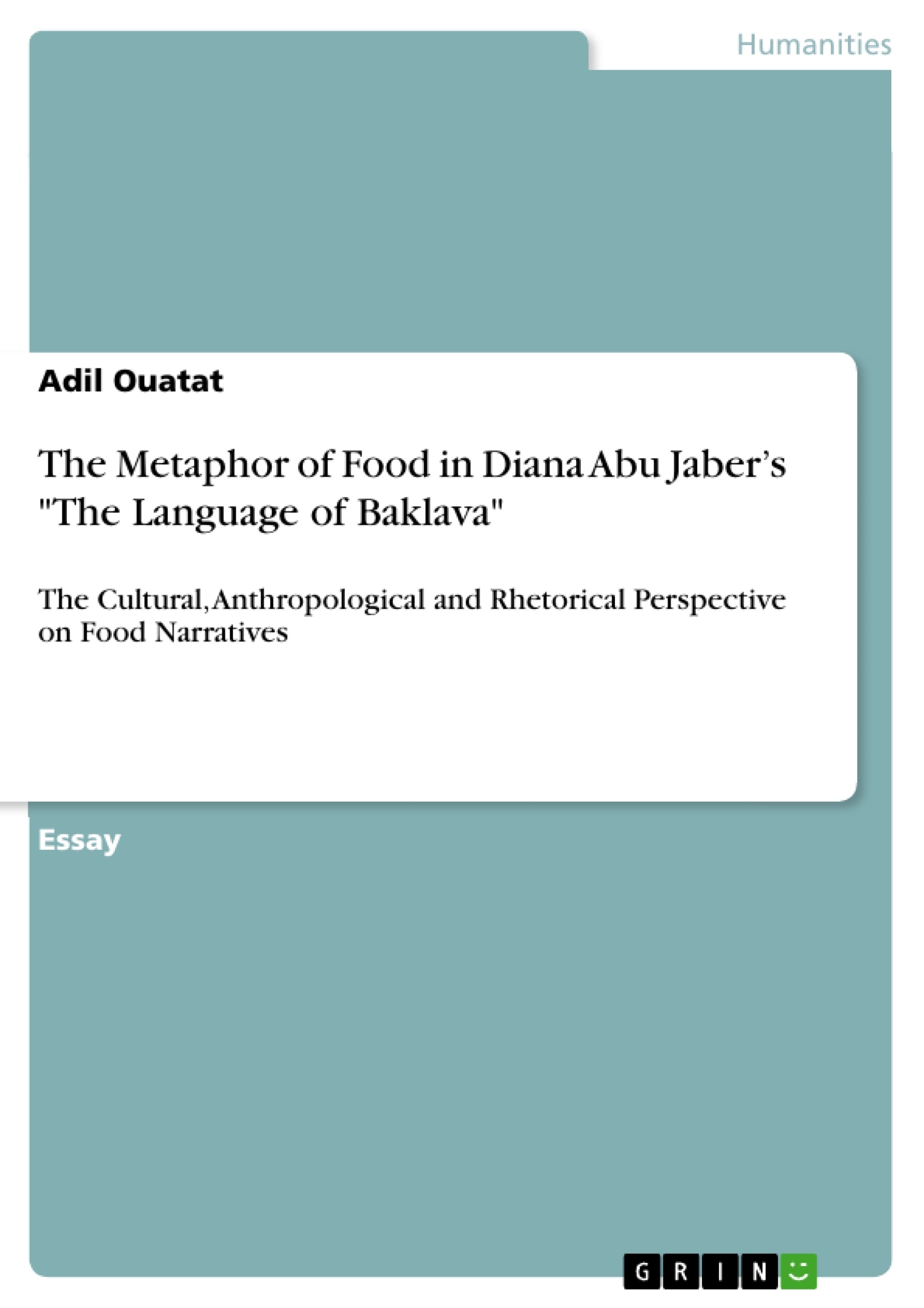This paper deals with the metaphor of food in Diana Abu Jaber's "The Language of Baklava" that reveals aspects of cultural identity and memory through food and metaphor. The analysis of textual representations of food is based on a theoretical framework that includes a cultural anthropological perspective, as well as a rhetorical perspective. Furthermore, textual analysis is used to examine metaphorical and food narratives in the literature.
Food is a powerful universal metaphor. It is associated with our senses, health and emotions besides our basic survival. Terry Eagleton states that food as well as literary works are actually a relationship. Furthermore, food is a central motif in cultural life and its metaphorical existence continuously touches on socio-cultural meanings. The metaphorical manifestation of food can extend the interest of the reader of literature to cultural and social interactions laden with food-related meanings.
Sidney Mintz argues that consumption is always conditioned by meaning as well as a form of self-identification and communication. In the same vein, Mary Douglas has identified food as a social code. Many voices and theorists from different disciplines have contributed to the cultural studies of food. Thus, this paper will analyse the textual representations of food from the cultural, anthropological, and rhetorical perspective, and how to employ the textual analysis in order to examine the motif of metaphor and food narratives in literature.
Table of Contents
- Introduction
- Metaphor and imagery in The Language of Baklava
- Bibliography
Objectives and Key Themes
This paper examines the use of food as a metaphor in Diana Abu Jaber's writings, particularly in "The Language of Baklava," to reveal aspects of cultural identity and memory. The analysis draws upon cultural anthropology, rhetoric, and textual analysis to explore metaphorical and food narratives in literature.
- Food as a universal metaphor
- The connection between food and cultural identity
- Food as a representation of memory
- The role of food in Arab-American literature
- Food as a bridge between cultures
Chapter Summaries
Introduction
This chapter discusses the significance of food as a universal metaphor and explores its connection to our senses, health, emotions, and cultural identity. The chapter highlights the work of various scholars, such as Terry Eagleton, Sidney Mintz, and Mary Douglas, who have explored the cultural and social meanings of food.
Metaphor and imagery in The Language of Baklava
This chapter analyzes the role of food as a literary trope in Diana Abu Jaber's works, specifically "The Language of Baklava." The chapter examines how food functions as a symbol that bridges the gap between the Arab-American migrant's place of origin and their new American setting. It also explores the connection between food and memory, as well as the psychological and emotional significance of food in everyday life.
Keywords
Food, cultural identity, memory, metaphor, Arab-American literature, textual analysis, rhetorical perspective, cultural anthropology.
- Quote paper
- Adil Ouatat (Author), The Metaphor of Food in Diana Abu Jaber’s "The Language of Baklava", Munich, GRIN Verlag, https://www.hausarbeiten.de/document/920364


